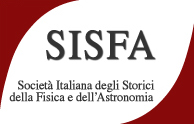Speaker
Description
The involvement of d’Alembert in musical issues has its roots in 1749, when Jean Philippe Rameau submitted to the Académie des sciences de Paris, for approval, a manuscript containing the elements of his musical theory. Even though d’Alembert praised Rameau’s theory he did not appreciate his prose, and for this reason he felt impelled to write a more readable treatise which originated the Élémens de musique of 1752, written anonymously as a form of respect, followed in 1762 by a second edition, this time with the name d’Alembert in the cover. To start with he declared music a physical mathematical science, like hydraulics and astronomy and unlike mechanics which is purely rational like mathematics. Thus for music too, as for the other physical mathematical sciences, one should not seek a striking evidence, which is the characteristic of the works of mathematics alone and which is found so rarely in those of physics. The Élémens de musique was not simply a didactical work; it was rather a propagandistic pamphlet for spreading d’Alembert’s rational epistemology. By reformulating Rameau’s brilliant but ineptly articulated theory into a rigorous writing, d’Alembert was able to provide both a vindication as well as an advertisement for his own peculiar scientific epistemology. A treatise on music was a perfect means to illustrate the merits of his professed empirical-rational methodology of physical sciences because more simple of his Traité de dynamique, for instance.

